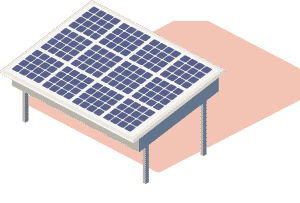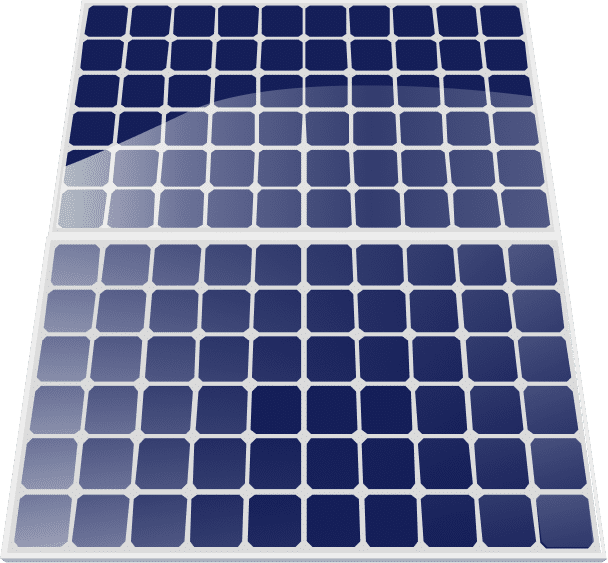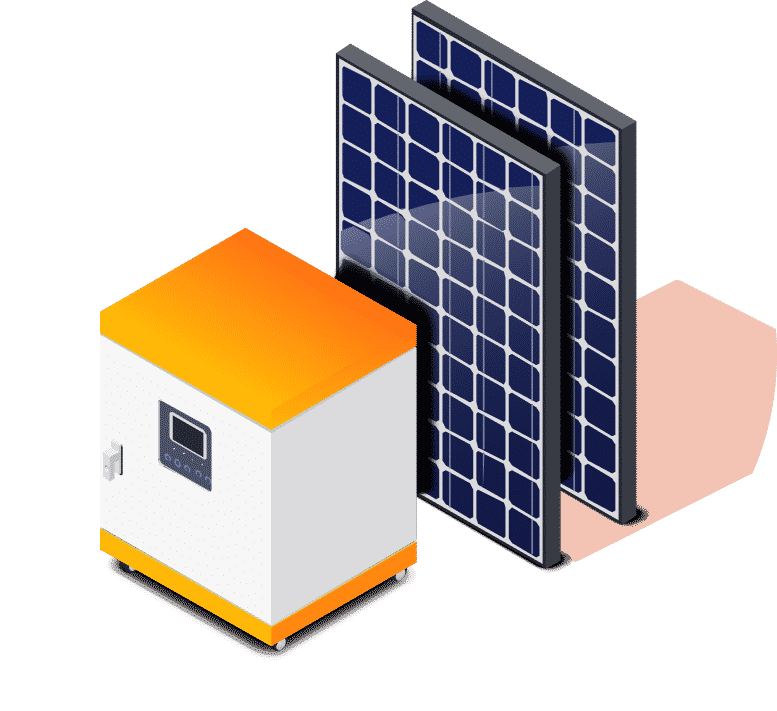Solar Panels as well as Power Outages

Solar Panels as well as Power Outages
Alternative power sources like solar can be used to keep you powered even if the grid goes shut down due to a catastrophe. Solar panels can’t be enough. You will need backup batteries to keep you running during an interruption. Let’s learn everything you need regarding solar panels in the event that the power is cut off.
Do solar panels work in the event of a power failure?
There are sparkling solar panels on your roof. Now you can generate a lot of your electric power. It’s almost time to stop paying power bills and are feeling like an environmentalist. One windy night, a storm slams into a huge tree on your block, and the power is cut off. Is your refrigerator functioning when the sun rises above the surface of the horizon? Most likely not.
It is likely that you are connected to your local electric grid tied solar system if your solar panel is mounted at the top of your home. This means that you are getting energy from the utility provider throughout the day, and also whenever your solar panels fail to generate enough energy. When your panels generate more energy than you need and you want to send it to them.
The majority of solar panels in homes are designed to be turned off when power is cut off. They are unable to feed electricity back to wires that may have caused the outage. You don’t want your panels to cause utility workers injury because of the voltage that is affected by power lines that have been shut down.
What’s the point of solar panels for a roof? If they can’t produce electricity? It is necessary to find an option to keep electricity running. What about batteries? Also, how can solar energy not flow to the grid if the grid is down.
Why don't solar panels work in a blackout?
Most homeowners who have solar panels on their homes have them “grid-tied,” which is when the panels are connected to an inverter.
The inverter connects to the main AC panel of the house along with a smart electric meter. This allows you to keep track of the power you get from the utility company as well as the energy your solar panels transmit back to grid. Grid-connected solar systems do not require any backup batteries.
This is why experts in solar home systems often state that the grid is their battery. Your solar system can produce extra energy, and you earn credit from neighbors. When the sun sets, you still need grid power from your utility company. You could receive a bill for power at as little as $0.01 If you follow the right balance.
A typical grid-tied system will have an automatic shut-off feature to prevent any extra energy from flowing over power lines that are damaged in the event of an outage. This feature is designed to protect line workers who are out fixing things when they break.
However, this does not mean that your home won’t be able to benefit from solar power. If your home is under the middle of a blackout, then your solar system is shut off.


How can you harness solar energy to withstand an outage in power?
There are many ways that to ensure that your home is running if the power is lost.
- Use a backup gas generator
- Solar batteries can be added to your system
- Solar-powered generators are an excellent option
- Inverters could be replaced with an Enphase Ensemble or Sunny Boy system.
1. Backup gas generator
Although we solar-lovers aren’t inclined to advocate burning things to generate power, the best method to make sure you have backup power in case of an outage is to buy an electric generator.
It is possible to purchase a gasoline generator that has a power capacity of 9000 watts for $1400, which includes installation and fuel costs. This allows you to power your entire home, while utility workers restore the grid.
It is possible to survive an prolonged outage by using an electric generator and fuel. If you have to, you may be able to help your neighbour. Even though your solar panels won’t be able to start until the grid is restored, at least you’ll be able to electricity.
Cons of an emergency generator
Gas generators can be noisy, obnoxious, and pollute the environment. Imagine the sound and smell that would be produced if your generators were run simultaneously by the neighbors of your ten most close.
There is also the possibility that your fire could start because of stored fuel. This could happen when you fill up near the hot metal parts on a generator. It’s not ideal to lose power due to increased fire risk.
Although some cleaner engines are available running on natural gas or diesel however the price of any higher is quite expensive. The power outage demonstrates that natural gas is very unstable, even in winter blackouts.
Generators aren’t the most ideal choice, other than the low cost. Let’s look at the various solar options, including the so-called solar generators in the following section.
2. Solar battery
A solar battery system is the most reliable solution to have peace of mind in times of power outages.
It’s hard to beat the feeling of having the sole home on the block that has the lights on even after the grid goes out. But, those who are generous among us would like to have everyone else enjoy the same privilege. The transition from grid power to battery backup power could be seamless and reassuring by using a solar battery.
There are many options available. From a bank’s of deep-cycle lead acid batteries, to the sleek and simple Tesla Powerwall, there are numerous options. Solar installers are adept at the installation of solar panels in conjunction with batteries, so you may be amazed by the array of Powerwall options that are available.
There are many accredited installers that are able to install Tesla when you have your heart set. There are a variety of options available to you if you’re open-minded and willing to explore the possibilities. You can find batteries from companies such as Shneyder Solar that are similar in price and functionality to Tesla’s.
Solar with no batteries (i.e. A solar-plus battery installation not like solar without batteries (i.e. The solar island you have installed will charge and discharge the batteries all day long even if the blackout is still in place. It is possible to continue operating this way even when there’s a power outage.
3. Solar generator
For about a hundred dollars, you could get the “solar generator” from Shneyder Solar that will at least ensure that your meals are warm as well as the space heater on.
Be aware that these portable options can be charged using solar panels or solar panels while the grid’s in use. However, without the same equipment required for a full-solar-plus-storage system, they will not charge from solar when it is down.
4. An inverter or inverter system that is distinct
It is possible homeowners who have solar panels to use the energy produced by solar panels without needing be connected to grid or have to create energy storage. Shneyder Solar that produces special solar inverters. These inverters are programmed to automatically shut off power grids in case of a power outage, while still supplying the energy you need from solar.
Most solar inverters come with the automatic shut-off that we have mentioned previously. Some inverters permit homeowners to convert to solar systems when there’s no power.
Other inverter is limited to generating 2,000 watts an hour of “opportunity energy” and is able to shut down if it draws excessive power. It only operates only when it is sunny.
It could appear like a lot, but it’s only 20 light bulbs of 100 watts. This isn’t enough to provide power to an air conditioner. Only essential appliances are eligible for power-up opportunities. Plug in your fridge and lamp along with your TV as well as your smartphone to keep you busy.
The total price of an inverter as well as the outlet may be $1,000 higher than an inverter that has the backup feature. This could be a desirable option if you consider the 10-year lifespan for the unit.
Shneyder Solar is an organization who has worked to get solar to work even when the grid is down. The energy management system and micro inverters work together to create “grid-agnostic” solar power. It is able to transmit power from the solar panels you have installed to your appliances so long as there’s enough sunlight. It can also work without batteries.
Shneyder Solar would prefer that you buy its energy storage solution through the Shneyder Solar solution. This will enable your home to run 24 hours per day by storing solar energy. You may also want to spend several thousand more for Shneyder Solar microinverters or the [xfield_company system.
Why not get off-grid?
Individuals who want to completely eliminate fossil fuels and make sure that only clean electricity flows through their wires may consider going completely off-grid. This is an option but it could be extremely expensive.
Even though going solar is now less costly than ever before but it’s still an investment of a substantial amount. Making the decision to go off grid could be very expensive. A small, off-grid solution that includes battery storage can cost thousands more than one connected to the grid. This is because of the expensive hardware needed.
Off-grid batteries must be able to supply enough energy for you through three cloudy, snowy days in winter. While this may seem like an excessive amount during summer, you wouldn’t need your residence to go without power and have to resort to a fossil-fuel generator. It’s back to the beginning.
GET YOUR FREE PROPOSAL IN A FEW EASY STEPS
Fill out the form and our sales consultant will contact you! Once you’ve had your initial consultation, you’ll begin your solar journey.
